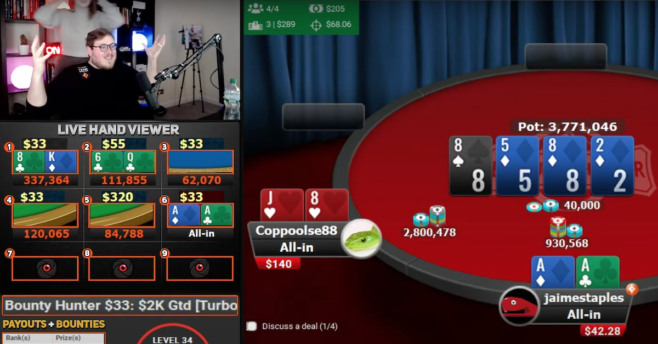
Manage your emotionsĪs you can probably tell, you’re more likely to experience disruptive emotions if you take things personally. If you miss the flop every time, your kings lose to aces and you never hit the draw by the river, you may become resigned to losing and play passively, to the detriment of your bankroll. The third typical tilt-inducing situation is when a bad run gets you down. If you lose your cool, you may find yourself playing too loosely or bluffing unwisely in a desperate attempt to get even.

Maybe you’ve been riled by another player’s comment or you’re mad at an opponent who keeps 3-betting you. The second kind of tilt is when things get personal between you and a specific player. The desire to get their own back or show who’s boss clouds their judgment and they lose big. Consecutive bad beats can cause players to lose their self-control. This is when your cards make you the favorite to win, but your opponent sucks out – they hit a card on the turn or river and beat you by sheer luck. The first kind is the anger that can erupt when you have a few bad beats.


If you lose and keep losing, this can cause you to tilt even further, trapping you in a spiral of negative emotion and bad play. Tilt is what happens when you’re overcome by emotion to the point that you start playing badly, heightening the chance that you will lose. We take a look at what makes poker players tilt and ways to deal with your emotions so you can become better at playing poker and maybe even the game of life. Conversely, sound anger and stress management can help you avoid tilt when you play online poker. It doesn’t matter how good your analysis is if you are liable to give way to anger or buckle under stress. All this is vital information, true, but there’s also an emotional side to poker that many players tend to underestimate. There are many guides with great advice for beginner poker players out there, but many of them focus on the technical side of the game, such as hand rankings, pre- and post-flop play and the importance of position in a Texas hold’em poker game.


 0 kommentar(er)
0 kommentar(er)
